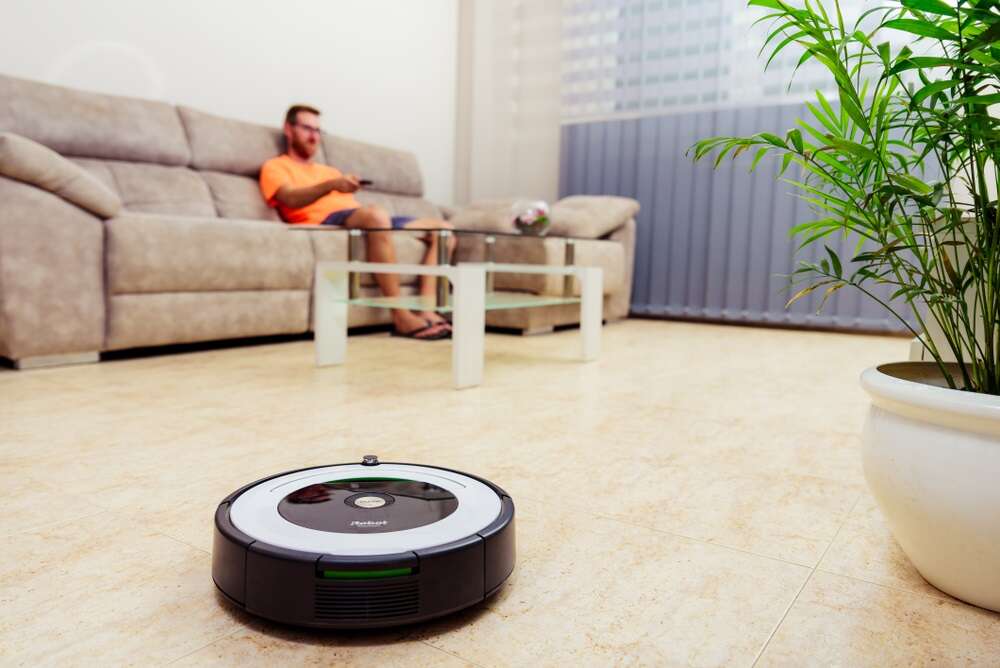
Amazon will no longer buy iRobot, it emerged today, citing objections from EU regulators. According to the US tech giant, the deal could not overcome concerns voiced by the European Commission in November that the acquisition would see the Roomba manufacturer face reduced competition from its rivals on Amazon’s online marketplace. The collapse of the deal has led to iRobot laying off 350 of its staff – a third of its workforce – and the resignation of its chief executive, Colin Angle.
“We’re disappointed that Amazon’s acquisition of iRobot could not proceed,” said Amazon’s senior vice president and general counsel, David Zapolsky, in a statement. “This outcome will deny consumers faster innovation and more competitive prices, which we’re confident would have made their lives easier and more enjoyable.”

Rug pulled from under Amazon iRobot deal
Amazon first proposed to buy iRobot in 2022, in a deal that originally valued the Roomba manufacturer at $1.7bn. The deal initially provoked unease among privacy campaigners, who argued that the acquisition would grant Amazon unprecedented access to home layouts by combining camera data from its Ring doorbells and the mapping data gathered by iRobot’s vacuuming units.
Over the following year, however, it emerged that regulators were mainly concerned that iRobot’s products would gain a privileged position on Amazon’s enormous online marketplace. While the UK’s CMA endorsed the deal in June 2023, stating that the deal would not trigger a “substantial lessening of competition” in that market, the European Commission said in November that its “preliminary view” was that it would.
The abandonment of the Amazon iRobot deal immediately triggered a termination agreement between the two firms, thought to involve the former paying the Roomba manufacturer a breakup fee of $94m. However, this will only partly ameliorate the robotics specialist’s financial woes. In July, the Carlyle Group agreed to loan iRobot some $200m loan to fund its operations until its acquisition by Amazon. In preliminary fourth-quarter results announced today, iRobot confirmed that this loan constituted most of the $185m is still retained in cash – but that this year, its GAAP operating loss was now up to $285m.
Collapse of Amazon iRobot deal means uncertain future for robotics startup
Now that the deal has been terminated, iRobot will embark on an aggressive restructuring program that it says will reduce its R&D expense by $20m annually and spend up to $13m on severance payments and other related costs. “The termination of the agreement with Amazon is disappointing,” said iRobot’s founder, Colin Angle. However, he continued, “iRobot now turns toward the future with a focus and commitment to continue building thoughtful robots and intelligent home innovations that make life better, and that our customers around the world love.”
Amazon’s Zapolsky also aimed a thinly disguised broadside against EU regulators, implying that the Commission’s apparent refusal to budge from its preliminary view on the deal would discourage the formation of new tech startups across the bloc. “Mergers and acquisitions like this help companies like iRobot better compete in the global marketplace, particularly against companies, and from countries, that aren’t subject to the same regulatory requirements in fast-moving technology segments like robotics,” he said. “Undue and disproportionate regulatory hurdles discourage entrepreneurs, who should be able to see acquisition as one path to success.”
European Commission executive vice-president Margrethe Vestager did not explicitly address this line of criticism in her statement issued in response to the collapse of the Amazon iRobot deal. “We… preliminarily found that Amazon would have had the incentive to foreclose iRobot’s rivals because it would have been economically profitable to do so,” wrote Vestager. “When assessing transactions of this kind, it is key to take into account what the transaction would mean for rivals and customers of the merged entity. This applies in particular to transactions by which large, established sales channels acquire suppliers that are heavily dependent on the acquirer’s infrastructure and customer reach to be successful in the EEA market.”






